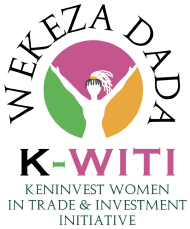Kenya’s private sector-led local solar companies are closing the previously existing financing gap to connect rural economies with free energy as the demand for solar increases.
With the demand for solar in Africa set to double next year, financing will play a key role in improving access to free energy as customers, estimated to be at 10m in Africa are set to double next year.
According to a multi-agency report released this year, tracking progress on SDG 7 (affordable and clean energy) progress, produced by the five SDG 7 custodian agencies – the International Energy Agency (IEA), the International Renewable Energy Agency (IRENA), the UN Statistics Division (UNSD), the World Bank and the World Health Organization (WHO), whilst it is still possible to achieve universal electrification by 2030, lack of effective private financing stands in the way of meeting global energy targets set by the seventh Sustainable Development Goal to meet universal electrification.
Snehar Shah, General Manager of Azuri Technologies in East Africa says private enterprises have led the way in financing the sector and will “Without sustained efforts, more people residing in Africa and Kenya by extension will still lack access to electricity in 2030. Azuri has invested over Sh.10 billion in Sub-Saharan Africa since 2012, Shs 2 billion in Kenya to connect over 200,000 households and is gearing to raise further debt to meet the growing demand.”
Azuri recently raised Sh2.6bn in equity from Japanese conglomerate Marubeni Corporation giving it financial muscle to increase its African penetration strategy with its free energy agenda.
“Marubeni investment which is a Fortune 500 company globally is evidence of our proven business model. We will use the equity funding to scale further in the region as well as Nigeria and develop our distribution platform much further, “said Snehar.
The Marubeni-Azuri relationship will be a long-term venture that will combine Marubeni’s global energy expertise and Azuri’s unique understanding of Africa’s rural consumer and last-mile distribution model.
According to Snehar, the partnership will enable Azuri to reach customers more effectively using the latest artificial intelligence tools and to build the infrastructure necessary to scale off-grid solar to a mass market.
Earlier this year, the Kenyan government launched a USD 100 million (Sh10 billion) facility under the Kenya-Off-Grid Solar Access Project (KOSAP).
The facility is aimed at encouraging the private sector to provide viable solar and clean cooking solutions to about 1.1 million people in the 14 marginalized counties of West Pokot, Turkana, Marsabit, Samburu, Isiolo, Mandera, Wajir, Garrisa, Tana River, Lamu, Kilifi, Kwale, Taita Taveta and Narok.
The Results-Based Financing (RBF) and Debt Facilities under the KOSAP are financed by the World Bank and implemented by the Ministry of Energy alongside the Kenya Power and Lighting Company (KPLC) and the Rural Electrification and Renewable Energy Corporation (REREC).
The move validates the long-standing claim that governments and funders are changing stance on solar – which is less pricey to acquire and equally beneficial. Grid connections cost anywhere between $250 and $2500+ depending on proximity to the grid. Mini-grids that offer a grid-like service still cost between $500 and $1500 to connect each household.
“Solar powering is unlike grid electricity which is a utility and customers need to pay for it all the time. Azuri’s pay-go model as a case study requires the customer to pay in instalments to eventually own a solar system. Once the system has been paid off, as solar energy is free no more spend is required by the customer,” added Snehar.
According to significant researches done on the impact of solar in rural economies are bringing benefits in financial inclusion, education, food security, entrepreneurship, media inclusion and Azuri reckons that households are now able to generate as much as USD 35 (Shs 3500) additional income per month.
“Far from the net savings per household, we have also done studies showing that children studying under the Azuri light are able to do as much as one hour of extra homework on a daily basis. Our TV’s bundled with local and international comment also promote the knowledge economy,” said Snehar.
Azuri’s long-term vision is to bridge the digital and services gap that exists between urban and rural communities through the power of solar.
Source: Capital FM Kenya.








